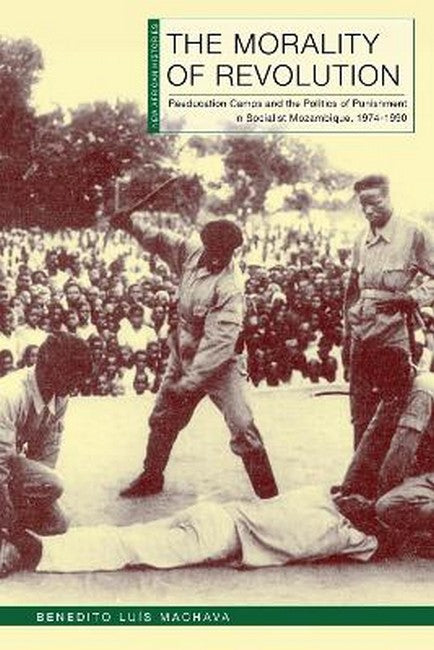Benedito Luis Machava is an assistant professor of African history at Yale University, where his teaching and research interests include colonial and postcolonial Africa, Lusophone Africa, liberation struggles, decolonization, nation-state building, and socialism in Africa.
Request Academic Copy
Please copy the ISBN for submitting review copy form
Description
List of Illustrations Acknowledgments Abbreviations Introduction Chapter 1 Revolutionary Morality and the Struggle for Mozambique, 1968-1974 Chapter 2 Political Transition and the Birth of the Reeducation Pipeline, 1974-1976 Chapter 3 "These Moral Deserters Must Be Reeducated" : Political Consolidation, Development, and the Punitive State, 1977-1983 Chapter 4 Vigilante Citizenship and the Politics of Denunciation, 1974-1984 Chapter 5 Reeducation Camps, Austerity, and the Carceral Regime: A Portrait from Niassa 142 Chapter 6 Abandonment and Everyday Life in Reeducation Camps, 1974-1982 Chapter 7 Wretchedness and Survival during Operacao Producao and the Civil War, 1983-1989 Epilogue Notes Bibliography Index
The Morality of Revolution is a nuanced, careful, and passionate exploration of the little-known history of Mozambique's reeducation camps. It is elegantly written and cogently argued. Possibly the most important book on Mozambican history written in the last two decades, this study will be of interest to scholars of revolutionary violence and reeducation camps globally. - Paolo Israel, author of In Step with the Times: Mapiko Masquerades of Mozambique Benedito Luis Machava gives us far more than a history of Frelimo's reeducation camps, an essential and almost unknown chapter in the history of independence-era Mozambique. The Morality of Revolution offers incisive analysis of nation-building amidst socialist revolution, a stark example of how the effort to build a new society inevitably involved a struggle over the future direction of the polity. - Eric Allina, author of Slavery by Any Other Name: African Life under Company Rule in Colonial Mozambique This history of Mozambique's do-it-mostly-yourself reeducation camps is a fascinating account of mass suspicion, mass incarceration, and then mass abandonment amid one of Africa's most radical socialist revolutions. How did urban "anti-socials" survive remote rural dumping grounds? To tell the story, Benedito Luis Machava finds sources most scholars wouldn't have dreamed could be found. - David Morton, author of Age of Concrete: Housing and the Shape of Aspiration in the Capital of Mozambique Benedito Machava's The Morality of Revolution is meticulously researched and carefully argued. It is a history of decolonization that shows that Frelimo sought to form the moral backbone of the national body politic to manifest the revolution. Machava finds the beginnings of moral practices and punishments in the colonial period and liberation struggle, demonstrating that independence was not a clean slate. Frelimo innovated and reimagined, often to very destructive ends. - Marissa J. Moorman, author of Powerful Frequencies: Radio, State Power, and the Cold War in Angola, 1931-2002

